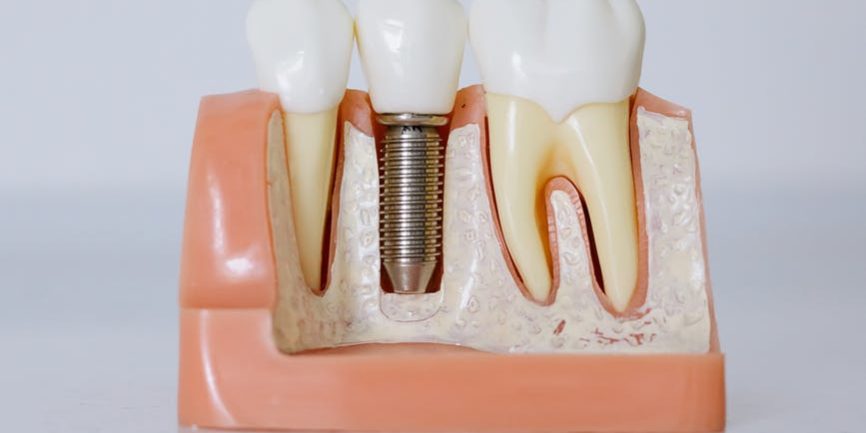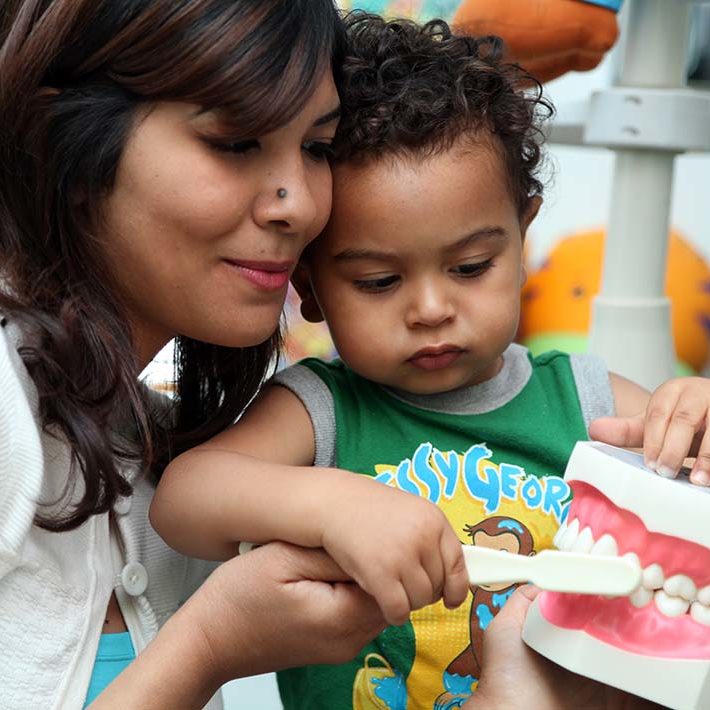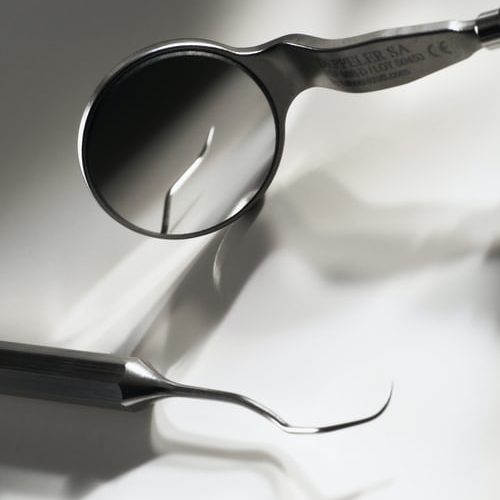General Questions
- What should I expect during my first visit?
During your first visit you will be asked to fill out a few forms that will enable us to diagnose and treat you in the best manner possible. We take a copy from your ID followed by an oral exam and a set of x-rays, photos or records for your dental needs. We appreciate the confidence you have placed in us and look forward to help.
- How do I schedule my appointment?
To schedule an appointment, simply call our office: on (002) 0111 5 1111 61 or (00202) 38378080 and tell them about your prefered day and hour.
- What if I need to cancel or re-schedule my appointment?
Our appointments are scheduled specifically for each patient. We ask that you notify us at least 48 hours in advance if you are unable to attend, so that we can serve other patients that might have pain and cannot find an appointment.
- How much will it cost?
The prices of our services vary depending upon which services are required. We do inform you in the first visit about all the treatment options, cost and time.
- How can I pay for my services?
We accept Cash, Master Card, and Visa.
- What if I have an Emergency?
We have a special line reserved for Dental Emergencies which is active 24 hours /7 days a week, even on holidays. We are always available to assist you on the phone or if needed our staff can be available in the clinic after hours within thirty minutes of your call.
- Do you have female dentists?
Yes, we have different female specialists, get in touch with out team so that we can assign to you the needed specialist.
- What is a tooth decay?
Tooth decay, which is cavities or dental caries, which is the destruction of the outer surface (enamel) of a tooth, allowing bacterial accumulation and multiplication.
- What is the process of cavity?
Certain bacteria on your teeth use the sugars from food and produce acids. The acids dissolve the tooth enamel.
Saliva fluoride and some foods helps minerals to build back up in teeth.
- What will happen if you do not remove dental plaque?
Bacteria (found in dental plaque) will convert sugars to acid which will cause dental caries. Dental plaque also can cause gum disease.
- Do we need regular checkup and fluoride sessions?
The most important step in caring for you oral health is visiting your dentist on a regular basis. The only way to get plaque and tartar build-up off is to get a professional cleaning.
Fluoride makes the entire tooth structure more resistant to decay and promotes remineralization, which aids in repairing early decay before the damage is even visible.
- How can diet influence plaque formation?
Avoid foods and drinks that have added sugar, such as soft drinks, sweets, biscuits, cakes, and food rich in carbohydrates.
Untreated, gum inflammation may progress to severe form of periodontitis, in which the bone and gums that support your teeth become damaged. Only a professional treatment program and improved daily oral care at home can keep it from getting worse.
- How to get rid from plaque?
Brush your teeth 3 times per day with a soft-bristled brush then clean between the teeth once a day with floss or interdental cleaners to remove plaque from between the teeth.
- How long should I brush?
2-3 times a day each time for 2-4 minutes, considering the last one at night before sleeping the most important one.
- When to replace a toothbrush?
Replace toothbrushes every four months, or when they begin to look worn and frayed.
- How to brush your teeth with braces?
When brushing teeth with braces, use a good electric toothbrush or an orthodontic toothbrush & interdental brush. Don‘t forgets the mouth rinse with fluoride.
- How do I clean around crown?
You should brush and clean between your teeth as you would normally. However, food and plaque are more likely to get trapped along the edges of a crown and under a bridge. Careful cleaning is essential every day.
- How do I clean around many crowns and bridge work?
You should consider using an irrigation device. This uses a pressurized stream of water to clean around restorations.
- Which is better manual or electric toothbrush?
Electric toothbrush more effective, less effort, last much longer but more expensive. Manual toothbrushes weigh and cost less.
- Do I need an electric toothbrush?
Electric toothbrushes can be beneficial for: children’s teeth; physically handicapped and mentally retarded and for poorly motivated people in keeping their oral hygiene.
- When do I need to replace electric toothbrushes?
Every 3 to 6 months or when the brush head has deteriorated.
- What is the mouth rinse?
Mouth rinse or mouthwash is a product used for oral hygiene. Antiseptic mouth rinse kills germs and bad breath. Anti-cavity mouth rinse uses fluoride to prevent tooth decay and sensitivity.
- Are there any side effects for mouth rinse?
Yes, and they can vary depending on the type of rinse. Habitual use of antiseptic mouthwashes that contain high levels of alcohol may produce a burning sensation in the cheeks, teeth, and gums. Overconsumption of mouthwash can stain teeth too.
- How can we clean between teeth?
Cleaning between the teeth is possible by the use of:
- Dental floss
- Interdental brushes
- Single tuft toothbrushes
- Dental sticks
- Rubber tip stimulators
- Irrigation devices.
- What is dental floss?
Dental floss is the best way to clean the tooth surfaces between the teeth. Different types of floss are available, such as regular floss, dental tape, and super floss. Floss is also available on a plastic holder, in the shape of a bow. It makes flossing very manageable.
- Should I floss?
Definitely. Floss removes plaque and debris that sticks to teeth and gums in between teeth and controls bad breath.
- Is chewing gum good?
Gum is a great way to keep “rinsing” your mouth. Choose one that contains fluoride or xylitol to help strengthen your enamel.
- What is water pick?
They pump water in a steady or pulsating stream. They do not remove plaque that is attached to the tooth. But they are great for flushing out food and debris in pockets between teeth, or in braces.
- What are tongue cleaners?
Tongue cleaners are recommended for scraping the surface of the tongue, where bacteria can convert food remnants into bad smelling gases. They are easy to use and come in sizes.
- What is tooth mousse?
New product derived from milk casein, used to fight cavities, and treat sensitive teeth.
- Why maintain your dentures?
The cleaning of both the dentures and the underlying tissue in the mouth is so important. Care of the soft tissues on which a denture rests includes removing the denture overnight, cleaning and massaging the tissues under the denture daily by brushing with a soft-bristled toothbrush or by massaging with the thumb or forefinger wrapped in a clean cloth and going for regular dental examinations to check for any irritation or changes in appearance of the tissues.
- What gets checked at a checkup?
Dentist will examine your teeth and gums for any visible problems. He also takes x-rays to make sure there are not any hidden problems. Your dentist also professionally cleans your teeth to remove hardened plaque, as well as polish them to remove hardened plaque and stains from the tooth surface. You should plan on seeing your dentist twice a year for checkups.
- I have a bad breath what can I do?
Bad breath affects a large proportion of population, estimated to be the third most frequent reason for seeking dental treatment, bad breath increases during the day (maybe due to stress or fasting), eating certain foods (like garlic, onions, meat, fish, and cheese), smoking and alcohol assumption. The mouth is dry and inactive during the night, the bad breath is usually worse when you wake up (morning breath).
- Treatment and prevention of bad breath
1. Brush the teeth twice daily and use mouth wash.
2. Gently clean the tongue surface twice daily to keep bad breath in control; that can be achieved using a toothbrush, tongue cleaner or tongue brush/scraper to wipe off the bacterial biofilm and debris.
3. Chewing gum can help production of saliva. Use gum when you cannot perform oral hygiene procedures after meals. This aids in provision of saliva, which washes away oral bacteria and promotes mechanical activity and the mouth.
4. Gargling right before bedtime with an effective mouthwash.
5. Control the source of the problem (smoking, alcohol, garlic, onion, or some medications, if possible.



